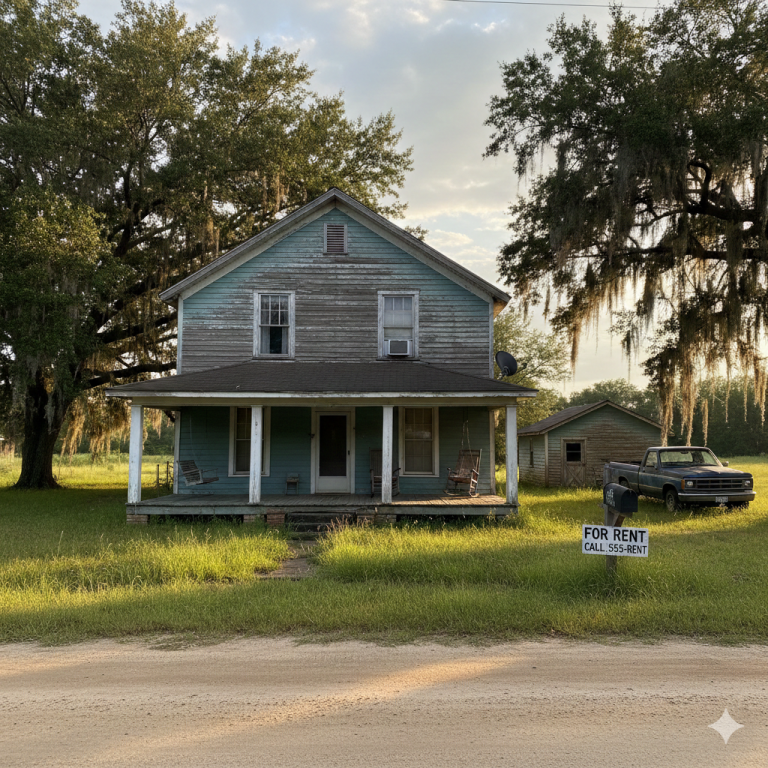Contributing Author & Editorial Review
This article was authored and professionally reviewed to provide accurate, actionable financial insights.

GHC Funding
Contributing Author
Alyssa writes about real estate investing, debt-free strategies, and emerging trends in small business finance with a focus on practical insights.

Samantha Reyes
Senior Content Editor
Samantha specializes in editorial strategy, compliance review, and refining complex finance topics into accessible, reader-friendly guidance.
DSCR Rental Loan Highlights
- Qualification based mainly on property cash flow (DSCR).
- No personal income docs required for many programs.
- Financing for 1–8 unit rentals, portfolios, and many STR/Airbnb deals.
- Up to 80% LTV on purchases and 75% LTV on cash-out (program-dependent).
- 30-year fixed and interest-only options available.
The Savvy Investor’s Guide to DSCR Loans in California: No Income Verification Needed
Unlock your real estate portfolio’s true potential with a DSCR loan. This guide breaks down the requirements, benefits, and why California investors are turning to this innovative financing solution.
- What is a DSCR Loan and Why is it a Game-Changer for Investors?
- DSCR Loan Requirements for Real Estate Investors in California
- Current Market Insights for California Investors (As of June 7, 2025)
- Why GHC Funding is Your Go-To Lender for DSCR Loans in California
- Where to Invest with Your DSCR Loan in California
- Frequently Asked Questions (Q&A) for California Real Estate Investors
- Take the Next Step in Your Real Estate Investment Journey
DSCR loan requirements with no income verification in California NOW! For real estate investors in the Golden State, the fast-paced and competitive market demands agility and strategic financing. Traditional loans, with their painstaking income verification and personal debt-to-income calculations, can be a significant roadblock. Enter the DSCR loan, a game-changer for investors who want to leverage a property’s income potential rather than their personal financial statements. This comprehensive guide will illuminate the path to securing a DSCR loan in California, with a special focus on the “no income verification” aspect that makes it so appealing.
What is a DSCR Loan and Why is it a Game-Changer for Investors?
DSCR stands for Debt-Service Coverage Ratio. In simple terms, a DSCR loan is a type of financing where the lending decision is based primarily on the investment property’s ability to generate enough income to cover its mortgage payments. The lender is more concerned with the property’s cash flow than your personal W-2s or tax returns.
Need capital? GHC Funding offers flexible funding solutions to support your business growth or real estate projects. Discover fast, reliable financing options today!
⚡ Key Flexible Funding Options:
GHC Funding everages financing types that prioritize asset value and cash flow over lengthy financial history checks:
DSCR Rental Loan
- No tax returns required
- Qualify using rental income (DSCR-based)
- Fast closings ~3–4 weeks
SBA 7(a) Loan
- Lower down payments vs banks
- Long amortization improves cash flow
- Good if your business occupies 51%+
Bridge Loan
- Close quickly — move on opportunities
- Flexible underwriting
- Great for value-add or transitional assets
SBA 504 Loan
- Low fixed rates through CDC portion
- Great for construction, expansion, fixed assets
- Often lower down payment than bank loans
🌐 Learn More
For details on GHC Funding's specific products and to start an application, please visit our homepage:

This presents a unique selling proposition for real estate investors, especially those who are self-employed, have complex income structures, or are scaling their portfolios rapidly.
The Key Advantages of a DSCR Loan:
- No Personal Income Verification: This is the headline benefit. Your personal income doesn’t factor into the qualification process, allowing you to keep your personal finances separate from your investment activities.
- Unlimited Number of Properties: Unlike conventional loans that often have a cap on the number of mortgaged properties an individual can own, DSCR loans typically have no such restrictions. This is ideal for investors looking to build a substantial portfolio.
- Faster Closing Times: With less paperwork to verify, the underwriting process for a DSCR loan can be significantly faster than a traditional mortgage, a crucial advantage in California’s competitive real estate market.
- Qualify Based on a Property’s Potential: Even if a property is currently vacant, lenders can use a projected rental income based on a professional appraisal to qualify the loan.
- Flexibility for Various Property Types: DSCR loans can be used for a wide range of residential investment properties, including single-family homes, multi-family units (2-4 units), and even short-term rentals in some cases.
DSCR Calc
DSCR Loan Requirements for Real Estate Investors in California
While the “no income verification” aspect is a major draw, there are still specific requirements you’ll need to meet. Here’s a detailed breakdown:
The DSCR Ratio Explained
The core of a DSCR loan is the ratio itself. It’s calculated as:
DSCR=Total Debt ServiceNet Operating Income (NOI)
- Net Operating Income (NOI): This is the property’s annual rental income minus its operating expenses (e.g., property taxes, insurance, and HOA dues).
- Total Debt Service: This is the total annual mortgage payment, including principal, interest, taxes, and insurance (PITI).
Most lenders in California will look for a DSCR of 1.25 or higher. This indicates that the property generates 25% more income than is needed to cover the mortgage payments, providing a healthy cushion. However, some lenders, like GHC Funding, offer more flexible options, sometimes even considering loans with a DSCR below 1.0, depending on other compensating factors.
Other Key Requirements:
- Credit Score: While personal income isn’t the focus, a good credit score is still important. Most lenders will require a minimum FICO score in the mid-600s, with more favorable terms offered to borrowers with scores of 700 or higher.
- Loan-to-Value (LTV): This is the loan amount as a percentage of the property’s appraised value. For a DSCR loan in California, expect a maximum LTV of around 75-80%, meaning you’ll likely need a down payment of 20-25%.
- Property Type: DSCR loans are typically for non-owner-occupied residential properties. This includes single-family residences, condos, townhomes, and multi-family dwellings up to four units.
- Entity Requirements: One of the significant advantages for serious investors is the ability to obtain a DSCR loan through a business entity, such as an LLC. This provides crucial liability protection and can offer tax benefits.
DSCR Loan IQ Quiz!

Test your knowledge of Debt Service Coverage Ratio (DSCR) loans!
Current Market Insights for California Investors (As of June 7, 2025)
The California real estate market is ever-evolving. Here’s a snapshot of what to expect with DSCR loans today:
Interest Rates
- Your DSCR: A higher DSCR demonstrates lower risk to the lender and will generally result in a lower interest rate.
- Loan-to-Value (LTV): A lower LTV (i.e., a larger down payment) will also typically secure a more favorable rate.
- Credit Score: A strong credit history will significantly impact the interest rate you’re offered.
- Property Type: The type of investment property can also play a role in determining the rate.
It’s crucial to get a personalized quote from a lender who specializes in these products.
Why GHC Funding is Your Go-To Lender for DSCR Loans in California
Navigating the world of DSCR loans requires a lender with specific expertise and a deep understanding of the California real estate market. This is where GHC Funding stands out.
GHC Funding has carved a niche in providing flexible and streamlined financing solutions for real estate investors. Here’s why they are the preferred choice:
- Unmatched Market Expertise: GHC Funding’s team possesses an in-depth understanding of the nuances of the California real estate landscape, from the bustling metro areas to emerging investment pockets.
- Flexible Underwriting: They recognize that not every investment scenario fits into a neat box. Their flexible underwriting process allows them to consider the unique aspects of each deal, often approving loans that traditional lenders would turn away.
- Streamlined Process: Time is money in real estate. GHC Funding has a streamlined application and closing process designed to get you the funding you need quickly and efficiently.
- Specialization in CRE and Business Loans: Beyond DSCR loans, GHC Funding offers a comprehensive suite of CRE loans and business loans, making them a one-stop shop for all your real estate investment financing needs.
Cash Flow Calc.
Where to Invest with Your DSCR Loan in California
The beauty of a DSCR loan is its applicability across California’s diverse real estate markets. Here are some examples of prime investment locations and property types:
- Los Angeles County:
- Silver Lake (90026, 90039): This trendy neighborhood continues to attract young professionals and creatives, ensuring strong rental demand for single-family homes and duplexes. A DSCR loan here could help you acquire a property with significant appreciation potential.
- Long Beach (90802, 90814): With its diverse economy and more affordable price points compared to other coastal cities, Long Beach offers excellent opportunities for investing in multi-family properties.
- Orange County:
- Anaheim (92801, 92805): The tourism-driven economy and major development projects make Anaheim a hotbed for both long-term and short-term rentals. A DSCR loan could be your ticket to a profitable Airbnb investment.
- Irvine (92602, 92618): Known for its strong job market and excellent schools, Irvine is a prime location for acquiring high-end single-family rental properties that attract stable, long-term tenants.
- San Diego County:
- North Park (92104): This vibrant, walkable neighborhood boasts a thriving craft beer scene and a strong rental market. A DSCR loan could help you invest in a charming bungalow or a small apartment building.
- Chula Vista (91910, 91911): As one of the more affordable areas in San Diego County, Chula Vista presents an opportunity for investors to enter the market and capitalize on its growing population.
- Inland Empire (Riverside & San Bernardino Counties):
- Riverside (92501, 92507): With its growing logistics and healthcare sectors, Riverside offers a more affordable entry point for investors seeking strong cash flow from single-family rentals.
- Temecula (92591, 92592): The beautiful wine country and high quality of life make Temecula an attractive location for families, creating a consistent demand for rental housing.
Pro Forma
Frequently Asked Questions (Q&A) for California Real Estate Investors
Here are some common questions we hear from investors considering a DSCR loan:
1. Can I get a DSCR loan if the property is currently vacant?
Yes. Lenders can use a projected rental income based on an appraiser’s analysis of comparable rental properties in the area.
2. Is there a limit to the number of DSCR loans I can have?
Generally, no. This is one of the key advantages over conventional financing, making it ideal for portfolio expansion.
3. What is the minimum down payment for a DSCR loan in California?
Typically, you can expect to need a down payment of at least 20%, but this can vary based on your credit score and the specifics of the deal.
4. Can I get a DSCR loan for a short-term rental property like an Airbnb?
Some lenders, including those with flexible underwriting like GHC Funding, will consider financing for short-term rentals. They may require additional documentation, such as rental income history from platforms like Airbnb or VRBO.
5. Do I need to form an LLC to get a DSCR loan?
While not always a requirement, it is highly recommended. Financing your investment property through an LLC can offer significant liability protection for your personal assets.
6. How quickly can I close on a DSCR loan?
Because of the reduced documentation requirements, DSCR loans can often close much faster than traditional loans, sometimes in as little as a few weeks.
7. Are DSCR loans only for experienced investors?
While experienced investors certainly benefit from DSCR loans, they can also be a great option for new investors who have a strong deal but may not qualify based on their personal income.
Get a Free Rate Today
Compare our top-rated commercial and investment property loan programs below.
- No income verification
- 30-year fixed | Interest-only available
- Great for rental properties + STR
- Fast approvals
- Working capital + business acquisition
- Up to $5M
- Low down payment
- Long-term financing
- Owner-occupied CRE
- Low fixed rates | 25-year terms
- Great for business expansion
- Refinance available
- Best for stabilized properties
- Competitive rates
- 12–25 year terms
- Lower fees than private lenders
Compare Loan Types
Find the Right Financing for Your Real Estate or Business Project
| Loan Type | Best For | Rates | Terms | Highlights | Apply |
|---|---|---|---|---|---|
| DSCR Loan | Rental properties (LTR & STR) | 5.99%+ | 30-year fixed, IO options | No income docs, fast approvals, great for investors | Check My Rate |
| Construction Loan | Ground-up, fix & build, major renovations | 8%–12% depending on scope | 12–24 months interest-only | Flexible draws, great for builders & developers | Get a Quote |
| SBA Loan | Business acquisition, working capital, CRE | Prime + spread | 10–25 years | Lowest down payments, long terms, best for business growth | See My Options |

The Funding Options for New Entrepreneurs Now
Discover diverse funding options for new entrepreneurs to escape corporate life and launch your business successfully.
Read more →
The SBA 7(a) vs 504 Loan in Mississippi Now
GHC Funding Website Published: March 3, 2026 Categories: blog Reading Time: 3 minutes read Understanding SBA 7(a) vs 504 Loans: What Mississippi…
Read more →
Get a DSCR Loan Calculator in Mississippi Now
GHC Funding Website Published: March 3, 2026 Categories: blog Reading Time: 3 minutes read Understanding DSCR Loan Calculators with Taxes and Insurance…
Read more →Take the Next Step in Your Real Estate Investment Journey
The California real estate market waits for no one. A DSCR loan with no income verification could be the key to unlocking your next profitable investment. Stop letting traditional lending hurdles slow you down.
Ready to see if a DSCR loan is the right fit for your investment strategy? Visit GHC Funding today to learn more about their innovative loan products and get a personalized quote. Their team of experts is ready to help you navigate the process and achieve your real estate investment goals.
Helpful External Resources for California Real Estate Investors:
- California Department of Real Estate (DRE): https://www.dre.ca.gov/
- California Association of Realtors (C.A.R.): https://www.car.org/
- The Apartment Association of Greater Los Angeles (AAGLA): https://aagla.org/
- Zillow Research Data: https://www.zillow.com/research/data/
- BiggerPockets California Investor Forums: https://www.biggerpockets.com/forums/
Get a No Obligation Quote Today.
Use these trusted resources to grow and manage your small business—then connect with GHC Funding
to explore financing options tailored to your needs.
GHC Funding helps entrepreneurs secure working capital, equipment financing, real estate loans,
and more—start your funding conversation today.
Helpful Small Business Resources
